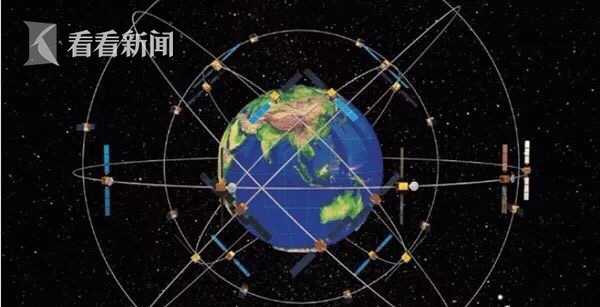
The system is called a causal system, otherwise it is called a non-causal system. For example, the system: yzs(t)=3f(t-1) is the causal system, because the response at the moment of t1 is caused by the stimulus at the moment of t1-1. Isn't this the first stimulus and then the response? There is a cause and effect. This is cause and effect.
That is, the causal system is a system that will not respond before the stimulus is joined.
If the output of a system at any moment only depends on the current input and the past input, the system is called the causal system. Such a system is often also called an unpredictable system, because the input of the system cannot predict the future input value.
System: If f(·)=0, t, tt0 (or kk0), then yzs (·)=T[{ 0}, { f(·)}]=0, tt0 (or kk0) is the causal system. The example is as follows: r1(t)=e1(t-1) is a causal system. Because the output is only related to the past input. R2(t)=e2(t+1) is not a causal system.
The definition of the causal system is that the output is caused by the input. The input corresponds to y (0), and y (-1) corresponds to the output before the input time. Therefore, if the system has output before the input, the output of the system is not only caused by the input, but also by a non-causal system.
This characteristic of the system is called causal characteristic. A system that conforms to causality is called a causal system or a nonanticipative system.In contrast, there are non-causal systems and anti-causal systems.
1, All memoryless systems are causal. 3) Although the causal system is very important, it does not mean that all practical systems are composed only of causal systems.
2. Different classification memory systems can be divided into three different subsystems: sensory memory system, short-term memory system and long-term memory system. There is no subsystem in the causal system. The output determinants of the current moment are different. The output of the current moment of the causal system only depends on the future input system.
3. Neither. Because we have another place of memory, which is the eighth knowledge of Araya.Because this knowledge does not have the function of self-certifying, you can't feel yourself, and ordinary people can't feel it, and of course you can't know the incommutable memory hidden in it.
4. Example of memoryless system: Example of memory system: The system has different outputs under different inputs. Examples of reversible systems: Examples of irreversible systems: The output of the system only depends on the input of the present moment and the input of the past. In other words, the output of the system cannot predict the future input, and the causal system is also called the unpredictable system.
The judgment of the causal system is as follows: 1). For a causal system, if the two inputs are the same until a certain time before t0 or n0, then the same outputs before this same time must also be equal.2) All memoryless systems are causal.
For example, the output when t=6 only depends on the input when t-2=4, that is, the input changes first and the output changes later, so the system is a causal system.
System causal determination: The zero-state response does not appear in the system before the stimulus. The response at any moment is only determined by the input value at that moment and before that moment, and has nothing to do with the input value of the future moment. All systems that can be physically realized are causal systems in time.
The system is called a causal system, otherwise it is called a non-causal system. For example, system: yzs(t)=3f(T-1) is the causal system, because the response of the moment of t1 is caused by the stimulation of the moment of t1-1. Isn't this the first stimulus and then the response? There is a cause and effect. This is cause and effect.
Causal sequence means that the output of the system K0 moment is only related to the K0 moment and the previous input signal. In general, the concept that the system output is not ahead of the input only corresponds to the discrete time system. However, the causal system (a physically achievable system) corresponds to two time systems, discrete and continuous, and should be distinguished.
Category definition Cause refers to the phenomenon that causes a certain phenomenon, and the result is a phenomenon caused by a certain phenomenon. For example, eating poisonous hairy clams is the cause, and acute hepatitis is the result.
It is the z transformation of the unit pulse response. The system function z=e on the unit circle is the frequency response of the system.Therefore, the z transformation of the unit pulse response can be used to describe a linear time-invariant discrete system.
n)=(1/2)*[h(n)+h*(-n)], h(n) is a real causal sequence. When n0, h(n)=0, when n=0, h(n)=h*(-n), [h(n)+h*(-n)]=2h(n), so he(n)=h (N), when n0, h*(-n)=0, so h(n)=2he(n).
1. That is, the causal system is a system that will not respond before the stimulus joins.
2. Causal system refers to a system in which output (response) will occur when and only when the input signal stimulates the system.That is to say, the (response) of the causal system will not appear at the previous moment of the input signal stimulus system. This characteristic of the system is called causal characteristics. A system that conforms to causality is called a causal system (non-preceding system).
3. System: If f(·)=0, t, tt0 (or kk0), then yzs(·)=T[{ 0}, { f(·)}]=0, tt0 (or kk0) is the causal system. The example is as follows: r1(t)=e1(t-1) is a causal system. Because the output is only related to the past input. R2(t)=e2(t+1) is not a causal system.
4. Causality: If the output of a system at any moment only depends on the current input and the past input, the system is called the causal system. This kind ofThe system is often also called an unpredictable system, because the input of the system cannot predict the future input value.

Hearthstone Arena win rate-APP, download it now, new users will receive a novice gift pack.
The system is called a causal system, otherwise it is called a non-causal system. For example, the system: yzs(t)=3f(t-1) is the causal system, because the response at the moment of t1 is caused by the stimulus at the moment of t1-1. Isn't this the first stimulus and then the response? There is a cause and effect. This is cause and effect.
That is, the causal system is a system that will not respond before the stimulus is joined.
If the output of a system at any moment only depends on the current input and the past input, the system is called the causal system. Such a system is often also called an unpredictable system, because the input of the system cannot predict the future input value.
System: If f(·)=0, t, tt0 (or kk0), then yzs (·)=T[{ 0}, { f(·)}]=0, tt0 (or kk0) is the causal system. The example is as follows: r1(t)=e1(t-1) is a causal system. Because the output is only related to the past input. R2(t)=e2(t+1) is not a causal system.
The definition of the causal system is that the output is caused by the input. The input corresponds to y (0), and y (-1) corresponds to the output before the input time. Therefore, if the system has output before the input, the output of the system is not only caused by the input, but also by a non-causal system.
This characteristic of the system is called causal characteristic. A system that conforms to causality is called a causal system or a nonanticipative system.In contrast, there are non-causal systems and anti-causal systems.
1, All memoryless systems are causal. 3) Although the causal system is very important, it does not mean that all practical systems are composed only of causal systems.
2. Different classification memory systems can be divided into three different subsystems: sensory memory system, short-term memory system and long-term memory system. There is no subsystem in the causal system. The output determinants of the current moment are different. The output of the current moment of the causal system only depends on the future input system.
3. Neither. Because we have another place of memory, which is the eighth knowledge of Araya.Because this knowledge does not have the function of self-certifying, you can't feel yourself, and ordinary people can't feel it, and of course you can't know the incommutable memory hidden in it.
4. Example of memoryless system: Example of memory system: The system has different outputs under different inputs. Examples of reversible systems: Examples of irreversible systems: The output of the system only depends on the input of the present moment and the input of the past. In other words, the output of the system cannot predict the future input, and the causal system is also called the unpredictable system.
The judgment of the causal system is as follows: 1). For a causal system, if the two inputs are the same until a certain time before t0 or n0, then the same outputs before this same time must also be equal.2) All memoryless systems are causal.
For example, the output when t=6 only depends on the input when t-2=4, that is, the input changes first and the output changes later, so the system is a causal system.
System causal determination: The zero-state response does not appear in the system before the stimulus. The response at any moment is only determined by the input value at that moment and before that moment, and has nothing to do with the input value of the future moment. All systems that can be physically realized are causal systems in time.
The system is called a causal system, otherwise it is called a non-causal system. For example, system: yzs(t)=3f(T-1) is the causal system, because the response of the moment of t1 is caused by the stimulation of the moment of t1-1. Isn't this the first stimulus and then the response? There is a cause and effect. This is cause and effect.
Causal sequence means that the output of the system K0 moment is only related to the K0 moment and the previous input signal. In general, the concept that the system output is not ahead of the input only corresponds to the discrete time system. However, the causal system (a physically achievable system) corresponds to two time systems, discrete and continuous, and should be distinguished.
Category definition Cause refers to the phenomenon that causes a certain phenomenon, and the result is a phenomenon caused by a certain phenomenon. For example, eating poisonous hairy clams is the cause, and acute hepatitis is the result.
It is the z transformation of the unit pulse response. The system function z=e on the unit circle is the frequency response of the system.Therefore, the z transformation of the unit pulse response can be used to describe a linear time-invariant discrete system.
n)=(1/2)*[h(n)+h*(-n)], h(n) is a real causal sequence. When n0, h(n)=0, when n=0, h(n)=h*(-n), [h(n)+h*(-n)]=2h(n), so he(n)=h (N), when n0, h*(-n)=0, so h(n)=2he(n).
1. That is, the causal system is a system that will not respond before the stimulus joins.
2. Causal system refers to a system in which output (response) will occur when and only when the input signal stimulates the system.That is to say, the (response) of the causal system will not appear at the previous moment of the input signal stimulus system. This characteristic of the system is called causal characteristics. A system that conforms to causality is called a causal system (non-preceding system).
3. System: If f(·)=0, t, tt0 (or kk0), then yzs(·)=T[{ 0}, { f(·)}]=0, tt0 (or kk0) is the causal system. The example is as follows: r1(t)=e1(t-1) is a causal system. Because the output is only related to the past input. R2(t)=e2(t+1) is not a causal system.
4. Causality: If the output of a system at any moment only depends on the current input and the past input, the system is called the causal system. This kind ofThe system is often also called an unpredictable system, because the input of the system cannot predict the future input value.

100 free bonus casino no deposit GCash
author: 2025-01-07 05:40Hearthstone arena deck Builder
author: 2025-01-07 05:00UEFA Champions League standings
author: 2025-01-07 06:04 Arena plus APK
Arena plus APK
637.27MB
Check European Cup live
European Cup live
662.35MB
Check 100 free bonus casino no deposit GCash
100 free bonus casino no deposit GCash
561.12MB
Check Arena Plus login
Arena Plus login
956.73MB
Check Casino Plus login register
Casino Plus login register
493.73MB
Check TNT Sports
TNT Sports
865.95MB
Check Free sports events uefa champions league app android
Free sports events uefa champions league app android
363.94MB
Check UEFA Champions League
UEFA Champions League
976.56MB
Check Bingo Plus
Bingo Plus
151.22MB
Check Free sports events uefa champions league app android
Free sports events uefa champions league app android
779.83MB
Check Bingo Plus
Bingo Plus
141.67MB
Check Casino free 100 no deposit
Casino free 100 no deposit
674.94MB
Check Europa League app
Europa League app
429.31MB
Check UEFA Europa League
UEFA Europa League
323.55MB
Check Bingo Plus
Bingo Plus
554.68MB
Check UEFA EURO
UEFA EURO
459.61MB
Check TNT Sports
TNT Sports
287.27MB
Check LR stock price Philippines
LR stock price Philippines
938.17MB
Check Hearthstone arena deck Builder
Hearthstone arena deck Builder
612.91MB
Check UEFA Champions League live
UEFA Champions League live
524.63MB
Check casino plus free 100
casino plus free 100
394.24MB
Check Hearthstone Arena Tier List
Hearthstone Arena Tier List
863.85MB
Check UEFA Europa League
UEFA Europa League
892.54MB
Check Hearthstone Arena Tier List
Hearthstone Arena Tier List
928.69MB
Check Arena plus APK
Arena plus APK
595.38MB
Check Hearthstone arena
Hearthstone arena
334.73MB
Check UEFA European championship
UEFA European championship
836.19MB
Check TNT Sports
TNT Sports
127.85MB
Check UEFA live free
UEFA live free
872.58MB
Check UEFA TV
UEFA TV
126.79MB
Check UEFA European championship
UEFA European championship
553.42MB
Check Casino Plus login register
Casino Plus login register
414.73MB
Check Casino Plus free 100
Casino Plus free 100
633.15MB
Check Free sports events uefa champions league app android
Free sports events uefa champions league app android
836.99MB
Check UEFA European championship
UEFA European championship
261.49MB
Check Hearthstone arena class win rates reddit
Hearthstone arena class win rates reddit
471.13MB
Check
Scan to install
Hearthstone Arena win rate to discover more
Netizen comments More
1833 DigiPlus fair value
2025-01-07 05:53 recommend
2403 Walletinvestor digi plus
2025-01-07 05:31 recommend
1529 Free sports events uefa champions league app android
2025-01-07 04:20 recommend
2553 Hearthstone Arena win rate
2025-01-07 04:07 recommend
2379 DigiPlus
2025-01-07 03:35 recommend